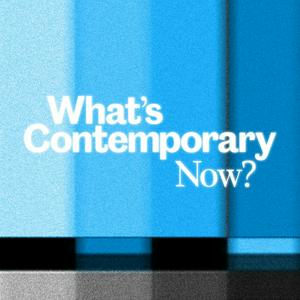Recho Omondi’s Candor, Curiosity, and The Cutting Room Floor
Recho Omondi, host of The Cutting Room Floor, handles candor with the ease of someone who has little interest in performance and every interest in clarity. Over seven years, her once-modest podcast has steadily entered the cultural foreground, helped along by her habit of thinking — and learning — in public.
She moves fluidly between roles: moderating conversations, appearing on other platforms, or steering her own interviews with a mix of composure and quiet provocation. There is an unmistakable steadiness to her presence, never loud, yet impossible to misread.
Raised by a single Kenyan father, the youngest of three, and shaped equally by the American Midwest and a constellation of international cities, her education was as experiential as it was academic. Unbothered by imposter syndrome, assured in unfamiliar rooms, and pragmatic about a future she believes has no fixed ceiling, Recho isn’t one to ask for anyone’s permission.
The goal with her work is to encourage people to think for themselves — to trust instinct, interrogate what is handed to them, and question the comfortable consensus wherever it appears.
“There’s never been a room I didn’t feel worthy of. Every room I’ve ever been in, I’ve thought, ‘Oh, finally.’” - Recho Omondi
Episode Highlights:
A childhood of dual worlds: Recho grew up in small Midwest towns while spending every summer traveling through Europe and Kenya, giving her a uniquely global perspective from a young age.
Raised by a single Kenyan father with big expectations: Her dad — an afropolitan ER doctor — emphasized reading, travel, ballet, theater, and intellectual curiosity, shaping her worldview and ambition.
Independence born from the absence of a mother: Without a maternal figure at home, she learned self-sufficiency, adaptability, and emotional self-navigation — traits that now show up in her confidence and presence.
The pre-med years and the turning point into fashion: Initially on a pre-med path, she realized fashion was her true calling after immersing herself in magazines and secretly visiting SCAD during spring break.
Her fashion label as a crash course in business: Running her own brand for seven years taught her everything — production, trademarks, operations — a real-world business school built through trial and error.
The Cutting Room Floor’s origin story: The podcast was born from frustration with how designers were misunderstood and siloed. She created the space she wished existed — honest conversations with the people themselves.
Her stance on confidence and imposter syndrome: She has never experienced imposter syndrome; every room she’s entered has felt right. Her self-assurance stems from upbringing, birth order, and early exposure to diverse worlds.
The recurring themes she sees across all conversations: Capitalism’s exhaustion, the tension between humanity and technology, and the truth that fashion is really about culture — not clothes.
Her critique of fashion media and Vogue today: Recho believes American Vogue has lost its edge and that Anna Wintour should have passed the baton around 2010 — while global editions and independent magazines remain strong.
What’s contemporary now: Kindness — not niceness. In a world overwhelmed by speed, noise, and digital disconnection, genuine empathy and presence feel modern, radical, and necessary.
Learn more about your ad choices. Visit megaphone.fm/adchoices


